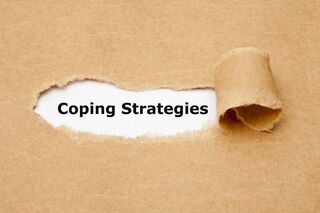Career
Why Negative Coping Skills Work in the Short Term
But that negative coping skill will become something to overcome.
Posted August 15, 2022 Reviewed by Michelle Quirk
Key points
- Relying on negative or unhealthy coping skills prolongs our recovery time.
- There is always room to improve our coping skills.
- Positively processing stressors does not have to be complicated or expensive.

Coping skills can be thought of as conscious and unconscious ways we hold, navigate, and process the feeling of emotional or mental overwhelm. Coping skills can also be thought of as positive/healthy or negative/unhealthy.
We learn some coping skills in childhood by watching the adults in our lives process, or not process, stress effectively. Some we choose carefully as adults who lead stressful lives. Coping skills are also relative: What’s restful downtime for some can feel like depression-inducing isolation for others.
Only Short-Term Help
Negative coping skills are things we do to decrease our stress or numb pain that only help us in the short term. Imagine you’re standing at the entrance to a bridge and on the other side of the valley is your whole future. Making sure we get enough rest, eat food that fuels our body instead of depleting it, and rely on support systems are examples of things that help us stay on the path and are healthy ways of coping. Relying on a negative coping skill over time, like drinking to fall asleep, is like blowing that bridge up. You can still get to the other side; it’s just going to take longer, and the journey will be a lot harder on you and everyone around you.
When you get a cut, the body immediately begins the healing process without your knowledge or effort. Your blood vessels contract, and platelets release proteins that mix together to coagulate and clot your blood. White blood cells rush to the area to attack any bacteria that entered your body, and your skin cells begin to reproduce to close up the wound. When you experience trauma, your body knows to do the same thing. Interrupting that process by using negative coping skills is going to increase the time you stay wounded. They are a barrier to healing.
We use negative coping skills because they work—but only for a while. They give us temporary relief for the pain, a momentary breath without holding the weight. But then that negative coping skill becomes just another thing we have to overcome. It isn't possible to out-will trauma, to out-achieve it, or to ignore it into oblivion. You are not the first person who will discover that you can't simply ignore trauma and still live the kind of life you want. It just doesn’t work like that.
Positively Processing Stressors
Positively processing stressors does not have to be complicated or expensive. There is always room to improve our coping skills. Adding 15 minutes of screen-free time before bed can be enough to give our brain some room to decompress before sleep. Deciding to take a walk around the block before work can be the beginning of actively working stress out of our bodies physically. Making the decision to find a therapist to talk to can be the bridge we take from where we are to someplace new.
I wrote about negative coping skills in my new book After Trauma, and parts of this post are adapted from that book.


